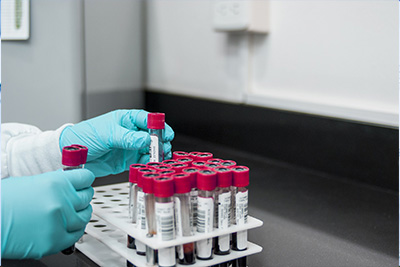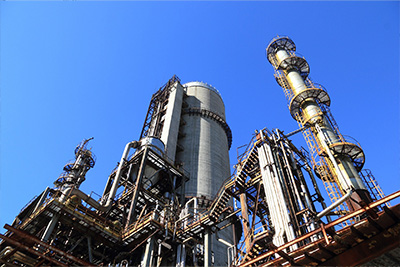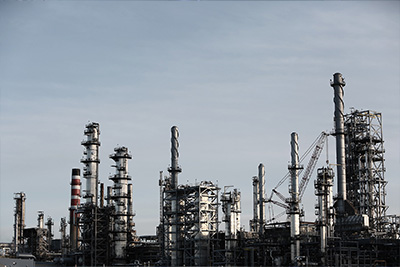-
![The Role of Methyl···]() 2024-11-28 The Role of Methyltin Mercaptide in ···
2024-11-28 The Role of Methyltin Mercaptide in ···Methyltin mercaptide plays a crucial role in reducing the emission of volatile organic compounds (VOCs) during the processing of polyvinyl chloride (PVC). As an effective stabilizer, it minimizes the decomposition of PVC under high temperatures, thereby decreasing the formation of harmful VOCs. This not only enhances the environmental sustainability of PVC production but also improves the overall quality and durability of the final product. The use of methyltin mercaptide thus represents a significant advancement in mitigating the ecological impact of PVC manufacturing processes.
read more > -
![Regulatory Standar···]() 2024-11-28 Regulatory Standards for Methyltin M···
2024-11-28 Regulatory Standards for Methyltin M···The article discusses the regulatory standards governing the use of methyltin mercaptide in industrial applications. It highlights key safety concerns, compliance requirements, and explores future trends in this field. The focus is on ensuring the safe handling and disposal of methyltin mercaptide to prevent environmental contamination and health risks. Additionally, it examines current regulations and their enforcement mechanisms, emphasizing the need for continuous improvement and adaptation to new scientific findings and technological advancements.
read more > -
![Understanding the ···]() 2024-11-28 Understanding the Mechanisms of Meth···
2024-11-28 Understanding the Mechanisms of Meth···The interaction between methyltin mercaptides and polyvinyl chloride (PVC) was investigated to understand its impact on the thermal decomposition process. Results indicate that methyltin mercaptides significantly influence the thermal stability and degradation pathways of PVC. Specifically, these compounds act as stabilizers by forming complexes with tin, which reduces the release of HCl during thermal treatment. This interaction delays the onset of PVC decomposition, thereby enhancing its thermal stability. The findings provide valuable insights into the mechanisms governing the stabilization of PVC under thermal stress, with implications for improving material performance in various applications.
read more > -
![Chemical Structure···]() 2024-11-28 Chemical Structure and Properties of···
2024-11-28 Chemical Structure and Properties of···The chemical structure and properties of methyltin mercaptide have been investigated, highlighting its potential for industrial applications in polyvinyl chloride (PVC) stabilization. This compound exhibits favorable characteristics such as high thermal stability and efficient free radical scavenging capabilities, making it an attractive candidate for use in PVC manufacturing processes. Its molecular structure facilitates effective interaction with PVC molecules, thereby enhancing the material's resistance to degradation over time. These findings underscore the practical implications of using methyltin mercaptide as a stabilizer in the PVC industry.
read more > -
![Optimizing Methylt···]() 2024-11-28 Optimizing Methyltin Mercaptide Dosa···
2024-11-28 Optimizing Methyltin Mercaptide Dosa···This study focuses on optimizing the methyltin mercaptide dosage in both rigid and flexible PVC applications to improve thermal stability. Through a series of experiments, the research identifies the optimal concentration that maximizes thermal resistance without compromising other properties of PVC materials. The results indicate that a well-calibrated methyltin mercaptide dosage significantly enhances the performance of PVC products under high temperature conditions, making it a crucial factor in manufacturing processes. This optimization can lead to extended product life and reduced maintenance costs in various PVC applications.
read more > -
![Advancements in Me···]() 2024-11-28 Advancements in Methyltin Mercaptide···
2024-11-28 Advancements in Methyltin Mercaptide···Recent developments in the synthesis of methyltin mercaptides have led to the discovery of improved methods that significantly enhance the purity and performance of these compounds. These advancements involve optimized reaction conditions and purification techniques, resulting in higher yields and reduced impurities. The refined processes not only increase the overall efficiency of methyltin mercaptide production but also ensure better quality, making them more suitable for various applications in industries such as coatings and electronics.
read more > -
![Environmental Impa···]() 2024-11-28 Environmental Impact Assessment of M···
2024-11-28 Environmental Impact Assessment of M···The environmental impact assessment of methyltin mercaptide (MTM) focuses on its degradation, bioaccumulation, and mitigation strategies. MTM degrades slowly in the environment, leading to potential long-term ecological risks. Studies indicate that MTM can bioaccumulate in aquatic organisms, posing threats to food chains. To mitigate these impacts, recommended strategies include strict regulation of MTM discharge into water bodies, development of advanced wastewater treatment technologies, and further research on biodegradation methods. These measures aim to minimize environmental harm and protect ecosystem health.
read more > -
![Comparative Analys···]() 2024-11-28 Comparative Analysis of Methyltin Me···
2024-11-28 Comparative Analysis of Methyltin Me···This study conducts a comparative analysis of methyltin mercaptide and other organotin compounds in polymer stabilization. The research evaluates their efficiency, toxicity levels, and environmental impact. Results indicate that methyltin mercaptide offers superior stabilization performance with lower toxicity compared to traditional organotin compounds. This makes it a more environmentally friendly option for polymer applications, highlighting its potential as a promising stabilizer in the industry.
read more > -
![The Role of Methyl···]() 2024-11-28 The Role of Methyltin Mercaptide as ···
2024-11-28 The Role of Methyltin Mercaptide as ···Methyltin mercaptide serves as an effective heat stabilizer in the manufacturing of polyvinyl chloride (PVC), enhancing its thermal stability during processing. This study explores the mechanisms through which methyltin mercaptide functions, focusing on its ability to capture free radicals and neutralize acidic byproducts. The evaluation reveals that it significantly improves PVC's resistance to thermal degradation, maintaining mechanical properties and prolonging the material's lifespan. Its efficiency is attributed to its unique molecular structure, allowing for superior interaction with PVC molecules, thus making it a preferred choice in industrial applications.
read more >







